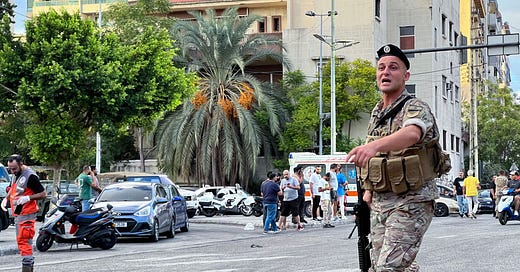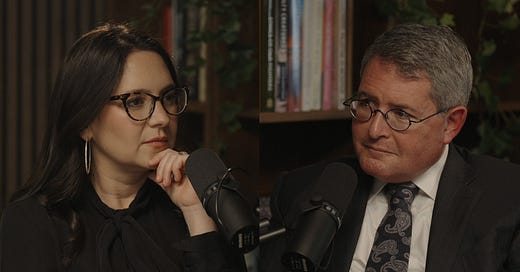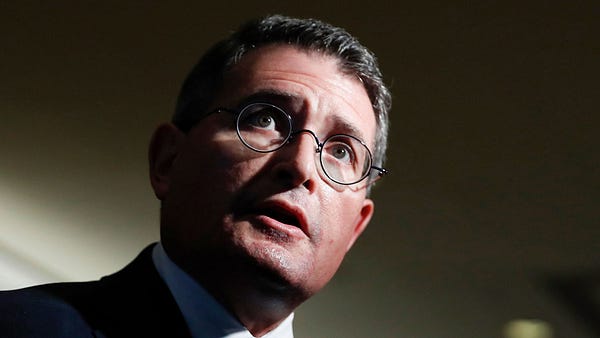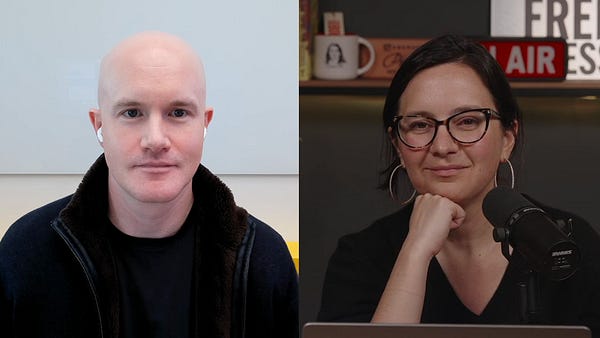
The Free Press

Yesterday, hundreds of pagers in Lebanon and Syria began exploding at the same time. Lebanon’s health minister said Tuesday that at least nine people have been killed and 2,800 were injured. The tiny country’s hospitals were overwhelmed with patients suffering from burn wounds, blown-up hands, and groin injuries. The pagers belonged to members of the Iran-backed terrorist group Hezbollah.
Then, today, less than 24 hours later, there was a second wave of simultaneous explosions in Lebanon: This time it wasn’t only pagers, but also walkie-talkies, all belonging to Hezbollah terrorists.
It was the stuff of spy movies—a sophisticated and precise operation unlike anything we’ve seen before. And while Israel has not officially taken responsibility, this kind of imaginative sabotage has Mossad written all over it. Hezbollah has vowed to retaliate against Israel.
The pager attacks come after almost a year of Hezbollah firing rockets into northern Israel. Since October 7, the constant barrage of attacks has forced some 70,000 Israelis to flee their homes on Israel’s northern border. Nearly a year later, they still cannot return.
Today on Honestly, Michael Moynihan sat down with Dexter Filkins, a journalist and Pulitzer Prize finalist, to talk about the ongoing “shadow war” between Israel and Iran’s proxies across the region. Dexter has been covering wars in the Middle East for decades for The New York Times and The New Yorker, and has been called “the premier combat journalist of his generation.”
To listen to the conversation, click below, or scroll down for an edited transcript:
On the “Shadow War” with Iranian proxies:
Michael Moynihan: Given Israel’s targeted attacks on Hezbollah over the past few days, are we looking at what’s going to become a hot war like we saw in 2006 or in the early ’80s?
Dexter Filkins: I don’t think either side wants a war. They’ve been very clear about that. Israelis don’t want it, and Hezbollah doesn’t want it. Hezbollah knows Lebanon would be destroyed in any kind of war like this. So they don’t want a war, but here we are. In that way, it feels like 1914. Nobody wants to go to war, but everybody’s getting closer and closer to the edge. As one side or the other ticks up the intensity of the firing, we just get closer to a full-on shooting match, which would be, I think it’s fair to say, apocalyptic for both countries.
MM: This is effectively a proxy war with Iran like the war in Gaza is, but it has a lot of local elements too. Hezbollah is essentially a creation of Iran, isn’t it?
DF: It really is. I think the best way to imagine Hezbollah is that it’s an Iranian aircraft carrier sitting off the coast of Israel. It’s created by Iran in the 1980s, paid for, trained, armed, equipped, directed, everything. When I was in Lebanon and I spent some time with guys in Hezbollah, they were completely clear about that. One of them, a senior commander in the field, said to me, “Iran controls every bullet we have.” He’d been to Iran several times. So that’s the best way to look at it, but you can see that when you look at it that way, it makes things much more complicated and much more dangerous.
MM: Why is there no direct engagement by Iran with Israel?
DF: We finally got that in April with the missiles. But, first of all, they’re far away from each other. And I think there is a respect on each side for how terrible a conflict like that would be, and I think they’re both trying to avoid it. What you have instead is this kind of shadow war. On the Iranian side, it’s Hezbollah, it’s Hamas, it’s everything they’re building in Syria. It’s the Houthis sinking ships. On the Israeli side, it’s air strikes every day in Syria, which you don’t read about very much, but they’ve been bombing the hell out of Syria for years. You’ve got the Mossad operations inside Iran, which are often extraordinary, like the exploding pagers. That’s how this war is unfolding. I think in part, or largely, it’s because a direct engagement would be, potentially, Armageddon.
On the political situation in Lebanon:
MM: Lebanon has not had a prime minister since 2022. It’s a dysfunctional state in a lot of ways. How much influence does Hezbollah have in the country as a whole rather than just some areas in the south that they control? If you take a look at Lebanon and its confessional groups, you have Christians, Druze, and different denominations of Islam. Hezbollah is just one faction here.
DF: The reason why Lebanon doesn’t have a president is because Hezbollah wants a particular person and the rest of the country doesn’t want it, so they’ve thrown sand in the gears of the whole thing. Hezbollah is such a strange entity because it’s basically a giant militia that’s separate from the state, but it’s more powerful than the state. And over time, they’ve taken over the state. Now they have members of parliament, they have ministers in the government. It’s this thing that began as a private army, and increasingly it has taken over. It’s very strange, nothing like it in the world.
MM: In your piece about your trip to Lebanon, you discuss going from one village to the next, and you have a village of Christians who say, “We have to leave because Hezbollah comes and sets up Katyusha rocket batteries, and then the Israelis respond here.” Those Christians intimated to you that they sometimes want Israel to succeed, right?
DF: Yeah, it was very strange. Lebanon’s a very divided country and the main groups are the Shi’ite Muslims who make up Hezbollah, but then you have a very large population of Christians who are very uncomfortable with Hezbollah. I think their feeling is, “My God, you’re going to drag us into another war. You’re going to get the country destroyed like you did in 2006.” It’s dangerous to say that out loud, but I think that’s a pretty good summation of how many of them feel. I was at a dinner party in Beirut. There were a lot of Lebanese Christians there, and one of them said, in an unguarded moment, “You know, if the Israelis came in here and just hammered Hezbollah, I think a lot of the country would cheer.”
MM: Americans are often very confused by the goings-on in the Middle East, as one could imagine. For example, in Syria, Hezbollah is fighting members of various Palestinian groups, whether it’s Islamic Jihad or Hamas. But now, in the war in Gaza, they’re on the same side. It’s just baffling to see how everyone will line up together to fight Israel but if left to their own devices, they’ll probably kill each other.
DF: It’s true. It’s like pickup basketball until the Israelis show up. I was talking to this Hezbollah commander in southern Lebanon, and he said, “Look, we’re kind of doing this because the Iranians want us to do it.” He had a big scar. He said, “I fought in Syria. And we fought against Hamas. We killed Hamas guys, they killed our guys.” He’s like, “And here we are.” He seemed almost as confused as I was.
On Hezbollah’s investment in tunnels:
MM: Last year I was up in northern Israel and I went into one of these tunnels that had been discovered. I don’t think people understand when talking about Gaza or Lebanon. The Israelis can do some amazing stuff and blow things up in your pocket, but their enemies are really sophisticated too in this way. These aren’t easy wars to win.
DF: No, they aren’t. God, I went into a Hezbollah bunker about 10 years ago, and it had been abandoned after the 2006 war. It was about a half mile from the Israeli border. And the Hezbollah guy gave me the GPS coordinates and said, “Just go here, you’ll find it. Go inside and take a look at it.” I went there using coordinates and stood on top of the bunker. I couldn’t find it, it was so well hidden. It took me 20 minutes to find the door. When I did, I went inside and it was just extraordinary. It was 300 feet under the rock, going straight down. There was an elevator shaft, there were beds, there were storehouses, there was a cafeteria. It was an underground city and it was a half mile from the Israeli border. And I don’t think they knew it was there. That was just one. I think there’s many of those. It’s really terrifying. Look at Hamas. It’s like, where’d all that money go that the Qataris gave them? It went to the tunnel network. And I think the same is true for Hezbollah. They’re incredibly committed, to a frightening degree. This is where they spend their money and their energy.
On the Iran nuclear deal:
DF: When the sanctions on Iran were lifted by the Biden administration over the nuclear agreement, that just freed up enormous amounts of money for the Iranian regime to kind of more easily fund its proxies. And so they were able to kind of—they all got a big shot in the arm—that actually during—and I’m not trying to make a campaign speech for President Trump—but during the Trump years and the period of maximum pressure. . . . This former intelligence official told me yesterday—you know Hezbollah guys weren’t getting paid—you know they were like, maybe they weren’t running out of money but they were hurting! And so I think as long as the Iranians have lots of cash—and as long as they’re selling oil—and God knows they’re selling all their oil to China now—that’s where it’s all going—they’re going to keep funding this stuff.
MM: The JCPOA—the Iran nuclear deal—which was finalized in 2015 under the Obama administration—we know that there was an infusion of cash. Were there any benefits—the upsides—that the Americans saw at the time retarding the advancement of the nuclear program?
DF: I think they’ve enriched it to 60 percent purity—enough uranium to make—you know—like three bombs—I think is my understanding—but you need to go to 90 percent purity to make the bomb! And I think that doesn’t take very long. And then you’ve got to weaponize the device. I think it’s just a question of whether they decide to do it now. And once they decide to do it—I think they can move pretty quickly. The breakout time used to be estimated at something like six months—I don’t know that it’s six months anymore. I mean—I think increasingly people are saying that the United States might not even know if the Iranians weaponize a nuclear device. So I think it’s free sailing right now for them.
On Hezbollah fighters:
MM: You talked to a commander about one of his friends that had been killed by an Israeli strike and he said something like “There’s a million martyrs to take his place.” Is that bluster? Or, if it’s true, is this the best policy from Israel?
DF: That’s the most interesting thing to me. Hezbollah, to me, is really a scary organization. I went to a Hezbollah funeral once. There are 12-year-old members of Hezbollah. I think it’s fair to say it resembles a religious cult. You’re in it for life, and they get you when they’re young, and they indoctrinate you. It’s the only thing they know, so I think when the Israelis kill a member of the Hezbollah leadership, it’s true, the next guy’s ready, and he steps right up right away. The organization can continue and carry on. So, it’s a professional army, but when your senior leadership starts to thin out in the way that Hezbollah’s is, I think it’s degrading them pretty seriously. I think we’re going to see signs of it because the Israeli campaign has been very precise as far as I can tell and extremely ruthless.
I met with the Hezbollah leadership. I met the number two, Nasrallah’s deputy. They’re pretty rational and they’re pretty reasonable and they’re pretty clear about saying, “Look, we don’t want a war. We hope this stays controlled.” But then I met the rank and file guys, the second- or third-tier leaders, and they want to fight. That’s like what they’re trained in their whole lives for. I said to one of the guys, as we’re standing a mile from the Israeli border: “Are you prepared to pack up? To avoid war, are you prepared to pack up and take your stuff and move back 10 miles?” He laughed. He said, “There’s only one direction I’m going in and it’s that way,” and he pointed to Israel. They want to go in.
On why the U.S. cannot realistically pull out of Middle East conflicts:
MM: You were on the ground in Iraq for four years or so. People tend to forget or want to forget about it now, but the effect the Iraq War had on the Middle East policy is still reverberating.
DF: If you remember, President Obama was all about the pivot to Asia. It was about ending the wars in Afghanistan and Iraq, then dealing with trade in the Pacific, and dealing more with the main enemy, which is China. Which was smart. That’s clearly what should be the grand strategy of the United States. But the trouble with the Middle East is that it has a vote too, and the Middle East always drags us back in. Whether it’s because of oil or because of Israel or because of a terrorist attack or because of the possibility of Iranian nuclear weapons, it always pulls us back in. That’s where we are today. We don’t have American soldiers on the ground there, but God knows we’re sending loads and loads of weapons and money to Israel to help them. That’s the thing; you can’t get away. You can’t pull yourself away from it.
MM: The dominant strain right now on the Republican Party seems to be like a 1950s, ’40s Taftian vision of keeping out of everybody’s business. Let’s stay home. Rand Paul is now normative. The Tucker Carlsons of the world—totally normal. Of course you’ve always had that on the sort of left wing of the Democratic Party. But: Can you get into the White House and say we need to totally, fully disengage from the Middle East? And if you were to do that, what would the consequences be?
DF: I think you stated it correctly. There’s an increasing trend in both parties to just wash our hands, not just the Middle East, but the whole world. To paraphrase our friend Trotsky, you may not be interested in the Middle East, but the Middle East is interested in you. We have tried for years to get out of the Middle East, and we have found ourselves incapable of doing it. It’s hard for me to look at the region right now. It’s imploding. I think it absolutely can get worse, and it will get worse if we walk away from it. That’s just a fact of life that we have to live with.
MM: I mean, that was the Obama administration’s desire—to wind this stuff down, to have the JCPOA and Iran deal and everything will be fine.
DF: And he woke up one morning and he was sending hundreds of American troops back to Iraq.
Listen to Honestly here, or whenever you get your podcasts, and to support the show, subscribe to The Free Press:















Great to see Dexter Filkins in the FP ! For those who don't take seriously or read the New Yorker or NYT anymore, he is missed. Thanks and more please :)
The only reason that there is a danger of full-scale war breaking out between Hezbollah and Israel is Hezbollah's continuing rockets, mortars, snipers, drone attacks against Israel. "They started it" might sound like a childish claim to someone sitting in comfort and peace, but let's see how long the complacency would last if over 11 months thousands upon thousands of hostile armament was shot at you? Let's see what would happen if tens of communities were evacuated while the buildings themselves were being systematically destroyed. Most importantly, and this even this honored publication doesn't emphasize, the Hezbollah had no reason to begin hostilities, NONE! Media stars and intellectuals can portray what is happening as some sort of adolescent hissy fit between two entities that "just have to sit down and talk about it", but it is a war of survival, Israeli's.